It is not difficult to sponsor kids in the third world, we hope more people will join in to make the world a better place.

This blog is about the little angels at our Clover Learning Centre -- A montessori school advocating a whole child education.


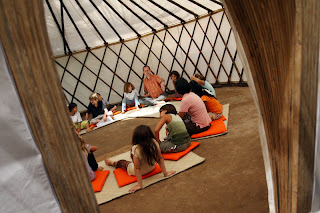

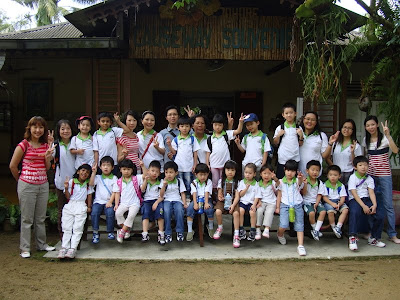 This trip was planned to link to the Cultural theme that we are working on this year -- Malaysia Project.
This trip was planned to link to the Cultural theme that we are working on this year -- Malaysia Project. 

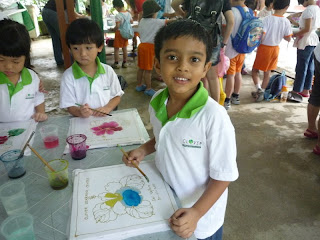
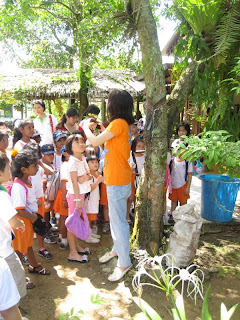


 1. CD featuring songs from class.
1. CD featuring songs from class.
 This workshop has opened my eyes to the work of Orff Shulwerk, and how PROCESS always matters more than results. The pedagogy is so step-by-step that I feel it is easy for the young children to perform a complicated work in a simple way!
This workshop has opened my eyes to the work of Orff Shulwerk, and how PROCESS always matters more than results. The pedagogy is so step-by-step that I feel it is easy for the young children to perform a complicated work in a simple way!


 "Milk & Cookies" empowers the parent to lead the child through familiar everyday home activities such as cooking, dusting and washing clothes. Baking cookies, eating cupcakes, blowing on hot cross buns, wiggling like jelly, going grocery shopping and making teas are all represented in familiar songs and activities!
"Milk & Cookies" empowers the parent to lead the child through familiar everyday home activities such as cooking, dusting and washing clothes. Baking cookies, eating cupcakes, blowing on hot cross buns, wiggling like jelly, going grocery shopping and making teas are all represented in familiar songs and activities!
1. Double CD features 50 songs, sounds, and recordings of favourite activities from class.
2. Two story books - "At My House" and "Cookies", to develop early literacy skills.
3. Home Activity Book
4. Stir Xylophone (FUN!!)
Lessons are conducted on Saturdays, once a week. There are 15 lessons for this theme (1 semester).
Semester Start Date: 19 June 2010 (Saturday)
Semester End Date: 9 Oct 2010 (Saturday)
Lesson Start Time:
(Group A): 10 a.m. - 10.45 a.m.
(Group B): 11.15 a.m. - 12 p.m.
Last Enrollment Date: 12 June 2010 (Saturday)
Please email us at cloverlearningcentre@gmail.com for:
1. All lesson dates for this theme/ semester.
2. Lesson Fees and Home Materials price.
3. Any other registration enquiries.
 Pick up your baby and dance! Dance the Charleston, the Tango, the Cha-Cha and learn why dancing with your baby helps develop vital learning skills - from head-to-toe. In this class, play a variety of baby appropriate instruments, a dance with fun props.
Pick up your baby and dance! Dance the Charleston, the Tango, the Cha-Cha and learn why dancing with your baby helps develop vital learning skills - from head-to-toe. In this class, play a variety of baby appropriate instruments, a dance with fun props.
Lessons are conducted on Saturdays, once a week. There are 8 lessons for this theme (1 semester).
Semester Start Date: 26 June 2010 (Saturday)
Semester End Date: 21 Aug 2010 (Saturday)
Last Enrollment Date: 12 June 2010 (Saturday)
Please email us at cloverlearningcentre@gmail.com for:
1. All lesson dates for this theme/ semester.
2. Lesson Fees & Home Materials price.
3. Any other registration enquiries.
 Our lovely children made Teacher's Day card for each Teacher. What a pity, some children were absent on that day. We also missed Auntie Shirin on that day. (From left: Auntie Chaz Yee, Auntie Latifah, Auntie Margaret, Auntie Liew, Auntie Rozah).
Our lovely children made Teacher's Day card for each Teacher. What a pity, some children were absent on that day. We also missed Auntie Shirin on that day. (From left: Auntie Chaz Yee, Auntie Latifah, Auntie Margaret, Auntie Liew, Auntie Rozah).God Make Teachers
~ Author Unknown~
God understood our thirst for knowledge,
and our need to be led by someone wiser;
He needed a heart of compassion,
of encouragement, and
patience;
Someone who would accept the challenge
regardless of the opposition;
Someone who could see potential
and believe in the best in others...
So He made Teachers.
~~~~~~~~~~~~~~~~~~~~~~~~~~~~~~~~~~~~~~~~~~~
The art of teaching is the art of assisting discovery. ~ Mark Van Doren
A good teacher is like a candle - it consumes itself to light the way for others. ~ Author unknown
A teacher is one who makes himself progressively unnecessary. ~ Thomas Carruthers
(This is so true in Montessori!)
A good teacher is a master of simplification and an enemy of simplism. ~ Louise A. Berman
(This is what we have been doing!)
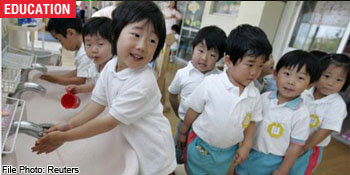
 tland, England and the USA, operating in woodland teaching children from 3 to 6 years old. The children at the age of 4 are allowed to use a knife without supervision. We see freedom within limitation here. The children are well aware of the consequence of misusing a knife, hence they are extra careful. Independence! Children learn academic subjects through activities in nature. These children can ease through their primary school very well after they have left the forest kindergarten, because they are more coordinated and willing to work out solutions to problems on their own. Bravo!
tland, England and the USA, operating in woodland teaching children from 3 to 6 years old. The children at the age of 4 are allowed to use a knife without supervision. We see freedom within limitation here. The children are well aware of the consequence of misusing a knife, hence they are extra careful. Independence! Children learn academic subjects through activities in nature. These children can ease through their primary school very well after they have left the forest kindergarten, because they are more coordinated and willing to work out solutions to problems on their own. Bravo!
Related links:
 "Montessori" is the family name of Maria Montessori, who developed the Montessori way of teaching. She was the first woman who graduated from the University of Rome La Sapienza Medical School, becoming the first female doctor in Italy.
"Montessori" is the family name of Maria Montessori, who developed the Montessori way of teaching. She was the first woman who graduated from the University of Rome La Sapienza Medical School, becoming the first female doctor in Italy.Note: There are a lot more examples that I can't list them all out here.
Related Blog:

Celeste was transferring and sorting small little beads with a tweezer. High level of concentration is needed in order to develop the eye-hand coordination. Look at her "do not disturb me" look :).


What a good helper Jia Le will be at the kitchen next time. He will have no problem filling up his tum even when he goes for a camping trip.
Learning how to take care of themselves is another important Practical Life lesson. Brushing teeth is a must-learn lesson. Heard from Tristan's mom that Tristan has been taking initiatives to brush his teeth after this lesson. Great impact!



During an ensemble to the Twinkle Dance, they really exercised their steady beats with their instruments. Zhi Hui, Oscar, Uma and Kareena played the major part of the music, Jia Jun, Jeslyn and Royce played the minor part. They all played in unison at the last part of the music.
They were not nervous at all with the spotlights on them! I love them all.
http://cloverlearningcentre.blogspot.com/p/kindermusik-clover.html
Related blogs:
2. Montessori Philosophy - The Soul of Early Childhood Teaching
3. Are Practical Life activities so important?
4. Peaceful Learning Environment
Related link:
1. Pre-school Teacher Training & Qualifications (Ministry of Education, Singapore)


The Discovery of the Child (Maria Montessori, 1982) - Maria Montessori discusses the array of materials and techniques needed to release a child's learning potential.